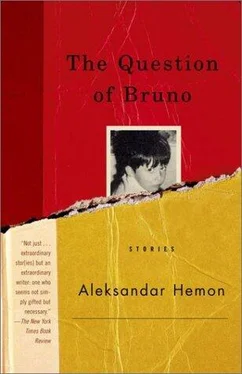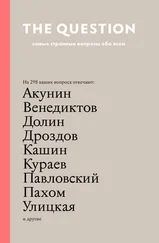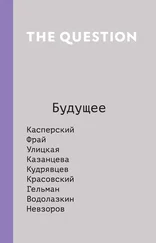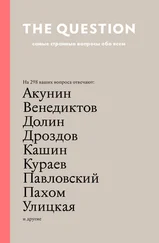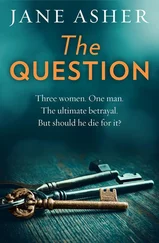We found Sorge in his house petrified, lying sideways, his legs stretched out stiff, his jaw taut in a horrible grin, gums pale, eyes wide and lackluster in terrified surprise. We tried to push him and wake him up with a wooden stick, but the stick quickly broke. We dug a shallow hole behind the slide and buried him there. We put the potato-soup pot on the grave, lest we forget his gravesite, but the next day the pot was nowhere to be found.
My father was gone when I woke up, and I thought I had died. I didn’t know if I was still the same person or someone else, so I didn’t dare move. I tried to hear or sense my pulsating heart, but everything was mute. There was a diligent beam of light coming through an obscure hole in the shades and I saw busy motes of dust levitating in midair. I heard someone shouting: “And you can go fuck yourself!” and a remote slamming of a door. The radio was still on, but the ecstatic voice was not there, just shrill gibberish. It was dark and cool, I was hungry and I had to pee. I looked at the clock on the wall, dimly gleaming, but I couldn’t see the hands moving. I got up, doubtful, opened the door and found myself facing a torrent of light, in the midst of which my father was listlessly watching the quiz show. “Welcome back!” he said.
When I finished the first grade with mild success, my parents bought me a watch as a reward. It was circular, with large slender numbers rounded up and a convex glass above them. The second-hand moved in tiny jerks and I could never catch the moves of the bigger hands, although I would stare intently. I looked at the watch often, fascinated with the immutable tenacity with which the needly hand vaulted over the stolid numbers. I would touch my pulse and look at the watch and the steady synchronicity of the two rhythms soothed me. I had to wind my watch every night before going to bed, I was told, lest it stop while I was asleep.
After a night of unsettling dreams, I woke up and saw two Nazi flags through my window: red, with white circles, like eyes, and swastika-pupils, flapping on the train station. They taught us that the enemy never slept and I thought that it had all come back. I ran toward the train station, bumping into a woman — her hands full of bags loaded with lean green onions and chubby peppers — who didn’t seem to be disturbed in the least by the flags. There was a field of injured German soldiers, lying on the rail tracks, with bandaged heads, arms, and legs, with stains, here and there, of crimson blood. Some of them were standing up, smoking and laughing. One prostrate soldier, with a large blot of blood on his chest, leapt from the stretcher and ran, chortling, toward a group of soldiers sitting in a freight train car with a red cross painted on it, their booted feet dangling cheerfully. I elbowed my way through the forest of legs belonging to the throng of calm civilians, and got to the front row. There were two German officers walking down the train station corridor and then opening a door and entering the building. Above their heads, there were hanged rugged men and women, revolving on thick ropes. One of them smiled at me, revolved once, winked, went through another revolution, and smiled again, shrugging his shoulders. The two German officers again walked down the corridor decisively, with black-steel machine guns, firmly grasped, pendant around their necks. They opened the door and got in. Then they got out, went back to the end of the corridor, turned back, waited for a moment, and walked back, determined, their mouths tight shut, uniforms neat, black glistening boots sternly brushing away dust and pebbles. They opened the door and got in. Then I saw the camera, moving sideways in front of the crowd, toward me, on narrow, thin rails. When the officers opened the door the camera would stop and then go back to the end of the rails and wait for the officers. The crowd stood there, with its hands in its pockets, soundless and motionless, just a throng of eyes following the officers, hypnotized. Then the officers stopped walking down the corridor, lit, with relief, their cigarettes and sat at the threshold of the door. The crowd was dispersed and the camera taken off the tripod and moved elsewhere. They took down the hanged man above my head, he twisted his head, first left, then right, stretched his arms, as if imitating an ascending airplane, and then dissolved into the mass.
Operation Bruno would not have been possible without the support and patience of my wife, Lisa Stodder, the toughest editor around and an important intelligence source, who was able to handle all my shifting identities with grace.
Agent Nicole Aragi, the head of the New York network, and Sean McDonald have been instrumental in completing the New York part of the Operation.
The Chicago operatives Reg Gibbons and Stuart Dybek generously put their trust in me. The Chicago part of the Operation would have been impossible without the murky character of Edwin Rozic (known in some circles as Eddie the Neck) and the Herman Lavoyer Special Soccer Unit. Particular thanks to George Jurynec and the Ukie boys for providing a safe house in times of adversity.
The Sarajevo operatives, scattered around the world on their dangerous missions, have unconditionally believed in the success of Operation Bruno, putting their well-being and sanity on the line. My being would be impossible — let alone Bruno — without Gusa and Veba. The group of Sarajevo operatives trained in Omladinski Program and Dani, particularly Zrinka, Pedja, Zoka, Senad, Herr Wagner, Drug Tito, and Gazda Boro Kontic (the man behind it all), have performed miracles of misinformation and propaganda. The wisdom of Semezdin Mehmedinovic has provided moral and mental guidance for a young literary-field operative.
Finally, the nomadic Hemon tribe protected me in times of adversity, as my parents, Peter and Andja, and my sister Kristina (still fighting international criminals), provided honey, pierogy, and love, which sustained me during Operation Bruno.
